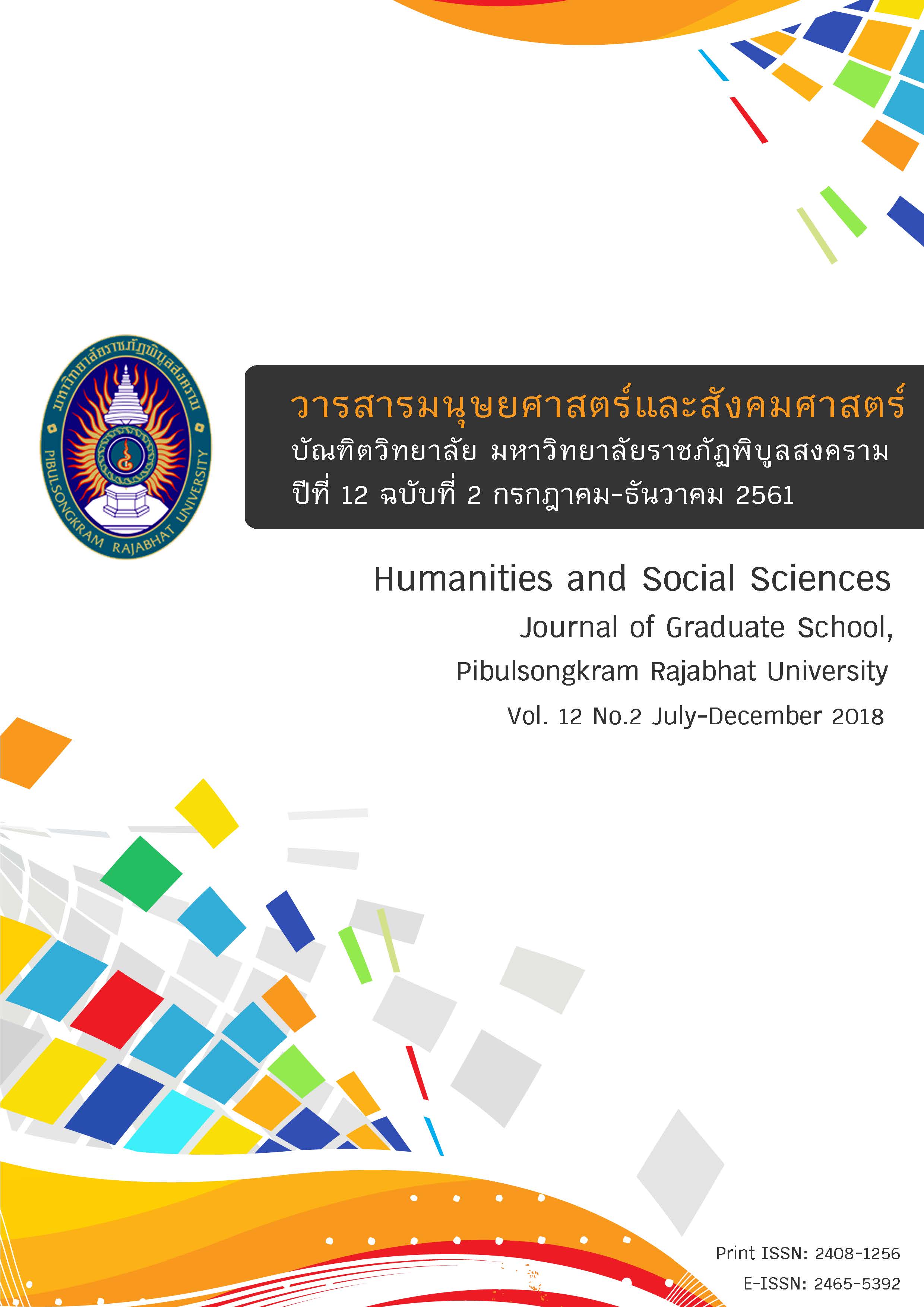Digital Literacy in the Workplace for Supporting Staff, Loei Rajabhat University
Keywords:
Digital literacy, Workplace, InformationAbstract
The purposes of this research were: 1) to study the digital literacy in the workplace and 2) to study factors affecting digital literacy in the workplace for supporting staff, Loei Rajabhat University. The research samples were 215 supporting staff. The questionnaires were applied for data collection which was analyzed by the descriptive statistics using frequency, percentage, mean, standard deviation and one-way ANOVA. The research results showed that: (1) The overall digital literacy for working was at the high level, the highest mean was safety in digital information working, followed by cultural and social awareness, communication and collaboration, and critical thinking and evaluation of digital information; the lowest mean was the digital information finding and storing respectively. (2) The factors affecting the overall digital literacy in the workplace mean was at high level; the highest mean was infrastructure, university policy, human resources, and development process; the lowest mean was external environments.
References
กลุธิดา ท้วมสุข. (ม.ป.ป.). การพัฒนาทักษะการรู้เท่าทันดิจิทัลสำหรับอุดมศึกษาไทย. ขอนแก่น: มหาวิทยาลัยขอนแก่น.
คมสันต์ พันธุ์ชัยเพชร. (2557). พฤติกรรมสารสนเทศในการปฏิบัติงานของบุคลากรสายสนับสนุนมหาวิทยาลัยขอนแก่น. (วิทยานิพนธ์ศิลปศาสตรมหาบัณฑิต). มหาวิทยาลัยขอนแก่น, ขอนแก่น.
พวงรัตน์ ทวีรัตน์. (2540). วิธีการวิจัยทางพฤติกรรมศาสตร์และสังคมศาสตร์. กรุงเทพฯ: สำนักทดสอบทางการศึกษาจิตวิทยา มหาวิทยาลัยศรีนครินทรวิโรฒประสานมิตร.
มหาวิทยาลัยราชภัฏเลย. (2559). รายงานประจำปี 2558. เลย: มหาวิทยาลัยราชภัฏเลย.
________. (2559). รายงานการประเมินคุณภาพ. เลย: มหาวิทยาลัยราชภัฏเลย.
แววตา เตชาทวีวรรณ, และอัจศรา ประเสริฐสิน. (2559). รายงานการวิจัย เรื่อง การพัฒนาแบบวัดการรู้ดิจิทัลสำหรับนักศึกษาระดับปริญญาตรี. กรุงเทพฯ: ภาควิชาบรรณารักษศาสตร์และสารสนเทศศาสตร์ มหาวิทยาลัยศรีนครินทรวิโรฒ.
Altbach, G. A. (2007). Internationalization within the higher education context. France : United Nations Educational Scientific and Cultural Organization.
Helen, J. (2016). Digital literacy in the workplace : Deciphering the Gobbledygook. Retrieved March 7, 2016, from http://www.linkedin.com/pulse/digital-literacy-workplace-deciphering-gobbledygook-helen-jamieson
Murray, M. C., & Perez, J. (2014). Unraveling the digital literacy paradox : How higher Education fails at the fourth literacy. Issues in Informing Science and Information Technology, 11, 85-100.
Downloads
Published
How to Cite
Issue
Section
License
Any articles or comments appearing in the Journal of Humanities and Social Sciences, Rajabhat Phibulsongkram University, are the intellectual property of the authors, and do not necessarily reflect the views of the editorial board. Published articles are copyrighted by the Journal of Humanities and Social Sciences, Rajabhat Phibulsongkram University.









